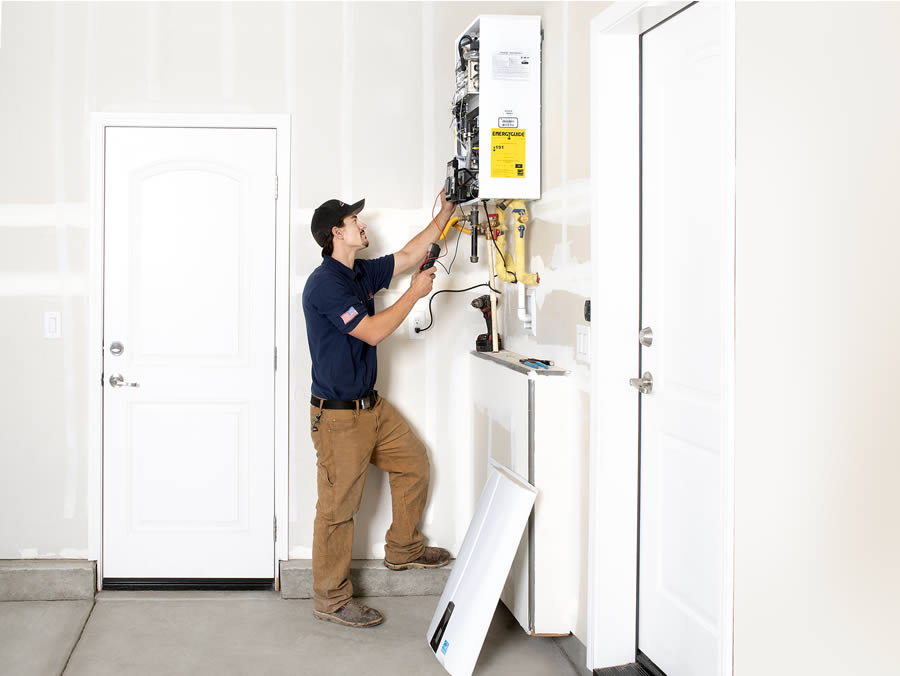Water heaters are essential appliances in our homes, providing hot water for showers, cooking, and cleaning. Understanding the lifespan of water heaters can help you plan for maintenance and replacement. In this post, we will explore how long water heaters typically last, the factors that influence their lifespan, and tips for extending their longevity.
Typical Lifespan of Water Heaters
Tank Water Heaters
Tank water heaters, the most common type in residential settings, generally have a lifespan of 8 to 12 years. With proper maintenance, some may last a little longer.
Tankless Water Heaters
Tankless water heaters, known for their energy efficiency and on-demand hot water supply, can last significantly longer, averaging 15 to 20 years. Their durability makes them a popular choice for homeowners looking for a long-term solution.
Heat Pump Water Heaters
Heat pump water heaters have a lifespan similar to tankless models, typically lasting 10 to 15 years. These units are energy-efficient and can save you money on utility bills over time.
Factors Affecting Water Heater Lifespan
1. Type of Water Heater
The type of water heater you choose plays a significant role in its lifespan. As mentioned, tankless models tend to outlast traditional tank heaters.
2. Water Quality
Hard water can lead to mineral buildup inside the tank, which can significantly shorten the life of your water heater. Regular flushing can help mitigate this issue.
3. Maintenance
Routine maintenance is crucial. Flushing the tank, checking the anode rod, and inspecting the unit for leaks can extend the life of your water heater. Neglecting maintenance can lead to premature failure.
4. Usage Patterns
If your household uses hot water heavily, this increased demand can strain your water heater, potentially reducing its lifespan. Conversely, moderate use can prolong its life.
5. Installation Quality
A poorly installed water heater may face more wear and tear than one installed correctly. It’s essential to hire a qualified professional for installation such as Rooter Man Plumbers in Tahoe.
Signs Your Water Heater Needs Replacement
Knowing when to replace your water heater is essential. Here are some signs that indicate it may be time for a new unit:
- Age: If your water heater is approaching the end of its expected lifespan, consider replacing it.
- Rusty Water: Discolored or rusty water could indicate corrosion inside the tank.
- Strange Noises: Rumbling or popping noises may signal sediment buildup or impending failure.
- Leaks: Any signs of leakage around the unit are cause for concern and should be addressed immediately.
- Inconsistent Water Temperature: If your hot water supply is inconsistent or insufficient, it may be time for a replacement.
Tips to Extend the Lifespan of Your Water Heater
1. Regular Maintenance
Schedule annual maintenance checks to ensure your water heater is functioning optimally.
2. Flush the Tank
Flushing the tank annually can help remove sediment buildup and improve efficiency.
3. Check the Anode Rod
Inspect the anode rod every few years and replace it if it’s significantly corroded.
4. Install Water Softener
If you live in an area with hard water, consider installing a water softener to reduce mineral buildup.
5. Monitor Temperature Settings
Set your water heater temperature to 120°F (49°C) to prevent overheating and reduce stress on the unit.
Conclusion
Understanding the lifespan of your water heater and the factors that influence it can help you make informed decisions about maintenance and replacement by a professional, such as Rooter Man Plumbers in Tahoe and Truckee. By staying proactive and attentive to the signs of wear, you can ensure that your water heater operates efficiently for years to come. If you’re unsure about the condition of your water heater, consult a professional for advice tailored to your specific situation.


